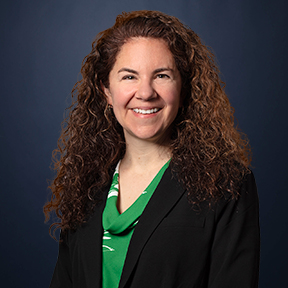COVID-19 Changes That May Be Here to Stay
One year has passed since the Coronavirus started making headlines in our national and local communities. During the early weeks of the Spring of 2020, we all experienced dramatic changes to both our professional and personal lives. As we mark the one-year anniversary of the COVID-related closures of the COVID-related closures, it seems that now is the appropriate time to consider which changes may be here to stay. We all look forward to the days when our offices are full once again, but there are many positive changes that we will carry into the next chapter of the practice of law.
Litigation Travel Savings
Perhaps the best news for any litigation client is that the COVID-19 related shutdowns and closures have prompted some significant cost reductions in a key area: travel. For the past year, most lawyers have been conducting depositions, mediations, and client meetings from their home offices. While the intellectual preparation required for these events has remained the same, the format of our preparation has changed. Lawyers are regularly using virtual meeting platforms to meet with clients, interview witnesses, and conduct discovery. The travel associated with these events in the past has been substantially reduced, if not eliminated. Since many lawyers charge by the hour for their services, clients have seen a reduction in their litigation expenses since lawyers are no longer compelled to travel throughout the country to pursue and defend litigation. Clients have welcomed this change and have saved substantial amounts of fees as a result.
Most litigators look forward to in-person depositions and mediations resuming at some point in the future. Yet, many litigators agree that some virtual depositions and mediations have earned the right to stay. Not every case will allow for this, but there may be some instances where parties elect to conduct virtual discovery on issues that previously dictated in-person appearances. For mediations, it may make sense for some clients and lawyers to appear virtually rather than in person to save the associated expense.
Virtual Court Proceedings
Since March of 2020, lawyers and judges alike have been conducting proceedings virtually. Courts are regularly scheduling hearings and conferences to be conducted via streaming platforms. While there are unique challenges associated with virtual proceedings, overall, there are also efficiencies to this process. Although lawyers and judges alike look forward to in-person, spirited courtroom proceedings in the future, many courts have advised that some proceedings such as routine status conferences or hearings may continue on a virtual basis well beyond the duration of the pandemic.
Office Space
Historically, law firms have been synonymous with shiny marble floors, pristine conference facilities, and large partner offices. But since many firms moved to entirely remote operations, there seems to be an emerging consensus that all the office space that law firms previously required may not be necessary in the next chapter.
The physical office of 2019 and before very well may not work as more partners, associates, and staff have become productive in their remote facilities. There seems to be a consensus that most of us need to engage with our teams in person on some level. But the reality is that most partners and associates will likely continue remote work at greater rates than before COVID upended our practices.
The days of lawyers regularly commuting to the office five or more days per week may well be gone. Accordingly, many lawyers may choose to use their office space differently. Law firms may shift towards allocating more space for collaboration than they previously did. If lawyers use their home offices for independent work time, then they may use the office for meetings, depositions, and other collaborations. Alternatively, lawyers may reduce their office space amounts which ultimately is good news for clients because this could correlate to a reduction in law firm overhead and, therefore, rates charged to clients.
Although most of the changes that occurred during 2020 were surprising and difficult, there are undoubtedly many positive changes that will help us provide superior service to our clients with greater efficiencies than ever before.

Author Sarah MacGill Marr
Sarah represents local, regional, and national companies in commercial litigation in Indiana and around the country. She represents clients in all stages of the litigation process, including trial, and has successfully defended claims for breach of contract, tortious interference with contractual and business relationships, alleged product defects, and premises liability.
Sarah concentrates her practice on commercial cases involving business torts and claims for breach of contract, but also often works with product manufacturers to defend claims. Sarah has a particular interest in structured negotiations and other strategies which may help clients avoid litigation. She regularly counsels clients regarding best practices to avoid litigation, including tips for negotiating and drafting their contracts.
© Riley Bennett Egloff LLP
Disclaimer: Article is made available for educational purposes only and is not intended as legal advice. If you have questions about any matters in this article, please contact the author directly.
Permissions: You are permitted to reproduce this material in any format, provided that you do not alter the content in any way and do not charge a fee beyond the cost of reproduction. Please include the following statement on any distributed copy: “By Sarah MacGill Marr© Riley Bennett Egloff LLP – Indianapolis, Indiana. www.rbelaw.com”
Posted on March 25, 2021 by Sarah MacGill Marr
